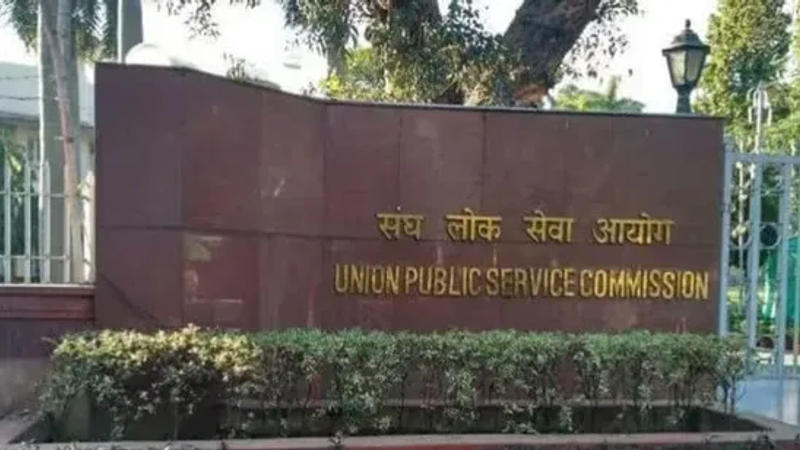Published 13:40 IST, August 20th 2024
What is UPSC Lateral Entry In Bureaucracy and Why It Has No Reservation | Explained
Understanding UPSC lateral entry in bureaucracy. All about the controversy against the latest UPSC recruitment advertisement and why it has no reservation.

UPSC Lateral Entry:The Union Minister of the Department of Personnel and Training (DoPT), Jitendra Singh on Tuesday requested the Chairman of the Union Public Service Commission (UPSC) to cancel the recent advertisement for lateral entry positions. This move comes in response to direct instructions from the Prime Minister, Narendra Modi.
In the largest recruitment drive since the inception of lateral entry in 2019, the Union Public Service Commission (UPSC) this week announced the opening of 45 mid-level positions across various ministries and departments. These posts, aimed at bringing in specialist talent from outside the traditional civil service, include roles at the level of joint secretary, director, and deputy secretary. The move is part of the government's ongoing efforts to inject expertise into the administration.
The announcement sparked a sharp backlash from opposition parties, who argue that the lateral entry system undermines the reservation system that protects opportunities for marginalized communities. Congress President Mallikarjun Kharge took to social media, accusing the government of a "double attack" on reservations, claiming that the ruling Bharatiya Janata Party (BJP) is deliberately circumventing the reservation system through such recruitment processes.
What is UPSC Lateral Entry Policy?
Lateral entry into the Indian bureaucracy is a process through which individuals from outside the traditional government service cadres are recruited to fill mid and senior-level positions. This practice is designed to infuse fresh expertise and perspective into the civil service, especially for roles that require specialized knowledge not typically available within the ranks of traditional government officials.
Historical Context
The concept of lateral entry isn't entirely new. It was formally recommended by the Second Administrative Reforms Commission (ARC) established in 2005 under the United Progressive Alliance (UPA) government. Chaired by Congress leader Veerappa Moily, the ARC advocated for bringing in professionals from the private sector, academia, and public sector undertakings (PSUs) to improve policy implementation and governance. However, it was during Prime Minister Narendra Modi's tenure that lateral entry was officially implemented, with the first vacancies announced in 2018.
How Does It Work?
Candidates selected through lateral entry are typically hired on contracts ranging from three to five years, with the possibility of extensions based on their performance. The Union Public Service Commission (UPSC) oversees the recruitment process, ensuring transparency and fairness. Positions such as joint secretaries, directors, and deputy secretaries across various ministries are filled through this method.
Why Govt Asked To Cancel UPSC Lateral Entry Advertisement
The most recent advertisement for lateral entry, issued by the UPSC on August 17, 2024, sought applications for 45 senior positions in 24 ministries. These roles are critical decision-making and administrative positions within government departments. The announcement sparked political debate, particularly around the issue of reservations.
Critics, including Congress leader Rahul Gandhi, have argued that the lateral entry process undermines the reservation system, which provides opportunities for Scheduled Castes (SC), Scheduled Tribes (ST), and Other Backward Classes (OBC) in government jobs. Gandhi and other opposition leaders have accused the government of using lateral entry to bypass reservations, with some alleging that it serves as a backdoor method to recruit individuals aligned with the ruling party's ideology.
Why There Is No Reservation in UPSC Lateral Entry Posts
The controversy surrounding reservations stems from the fact that lateral entry hires are not subject to the same reservation policies as other government jobs. According to a Department of Personnel and Training (DoPT) circular, reservation policies do not apply to lateral entry appointments because these are typically "single post" roles. In 2019, Jitendra Singh, the Minister of State for the DoPT, clarified that caste-based quotas do not apply to these positions as they are individual appointments rather than group recruitment.
The Government's Defense
The BJP has defended the lateral entry system, highlighting that it was originally conceptualized during the Congress-led UPA government. Union Minister Ashwini Vaishnaw emphasized that lateral entry is a necessary reform to bring specialized talent into the bureaucracy, particularly in areas requiring domain expertise. He pointed out that the current process is transparent, with selections made by the UPSC.
Updated 16:26 IST, August 20th 2024




